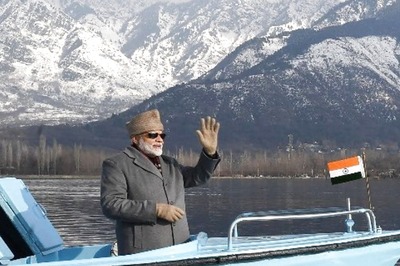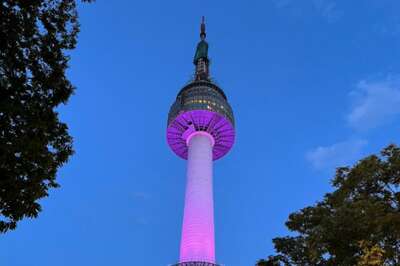
views
Amid the pandemic-induced economic downturn, India can positively look at two significant occurrences next year when Elon Musk formally announces Tesla’s entry into the country and Tim Cook opens first Apple retail store, along with a thrust on assembling/manufacturing more products in the country.
The two big-ticket investments in the form of Tesla and Apple are set to lift India as a brand on the world map — further signalling the end of its dependence on China-led investments in the tech and auto sectors — while ensuring job creation and wooing more foreign investment.
While key modalities for Tesla’s entry into the country are yet to be finalised — amid concerns over an absence of a supercharging station network and a Gigafactory or a collaboration with an Indian EV maker – one thing is clear: Musk this time has firmed up his mind to see Tesla cars run on the Indian roads after ditching the country several times in the past over challenging government regulations.
Invites have started coming, like from the Maharashtra government. Musk, however, is yet to reveal more, after saying there is an India team working on the next year for sure scheduled Tesla entry and will release order configurator probably in January.
Whether Musk will announce a Tesla plant or a collaboration with an existing player like Mahindra Electric in India to push Prime Minister Narendra Modi’s domestic manufacturing dream or source the EVs from other facilities (like Gigafactory in Shanghai, China which is the nearest one) is still not clear.
Tesla has really driven into the China EV market, turning out thousands of Model 3 sedans this year with a growing share of China’s EV market.
According to leading tech policy and media consultant Prasanto K. Roy, Tesla’s India plans are unclear and unknown.
“Musk said he could be aiming for 20 million vehicles globally by 2030, replacing 1 per cent of the global fleet each year. Up to a tenth of that could come from India. But neither Tesla nor India will be ready in 2021 for any major ramp-up in EVs," Roy told IANS.
Tesla is overstretched with its global plans: it has its hands full with China.
Roy said he would expect Tesla to look at a three-pronged India strategy.
“A base for software, testing and R&D, explore distribution tie-ups for charging networks and support for Model 3 buyers and evaluate tie-ups for initially assembling Model 3, while sourcing local suppliers for the body and components other than motor, battery and charger," he explained.
On the other hand, Apple which last month launched its exclusive Store Online in India, is all set to open its first branded retail store in 2021, along with a mega push to assembling its new iPhones and other products via third-party contractors in the country.
Currently, iPhone XR and iPhone 11 are being assembled by Foxconn at its Chennai manufacturing plant while iPhone 7 is being assembled by Wistron in Bengaluru.
The new iPhone SE 2020 is being assembled by Apple supplier Wistron at its Bengaluru facility.
Apple has been here for many years albeit with very low impact on the mobile phones market. However, Apple’s contract manufacturers had slowly been moving more production to India to reduce dependence on China.
According to Roy, its models are still expensive and ‘local manufacturing’ alone may not fix that problem.
“Apple does not manufacture itself as it outsources production to contract manufacturers, like Foxconn in Chennai (iPhone 11 and XR). The iPhone 12 is likely to be made next year in a new Bengaluru plant run by another Taiwanese contract manufacturer, Wistron," he told IANS.
The Cupertino-based $2-trillion company had a strong run in the third quarter (July-September)this year, shipping nearly 8 lakh units in the country and registering double-digit growth, according to market research firm Canalys.
“Apple is finally paying attention to India," said Canalys Research Director Rushabh Doshi.
According to Prabhu Ram, Head-Industry Intelligence Group (IIG), CMR, thrust on manufacturing high-end iPhones locally along with the first-ever flagship retail store would give Apple a booster in the price-sensitive smartphone market in 2021.
“Apple turned around its India story in 2019 and there is no looking back since then," Ram told IANS.
“Apart from increased local manufacturing, Apple found favour with customers, with its prudent pricing and refined channel strategies".
The momentum is part of global expansion plans for both Tesla and Apple — in an important potential market where Apple earlier missed the bus and Tesla doesn’t play yet.
“The EV arena, however, will be a big focus for growth and jobs, a reason why Maharashtra is keen to get Tesla in, and Tamil Nadu, Karnataka, Haryana and others will be fighting to bring Tesla in," Roy told IANS, adding that even though it alone may not impact EV numbers or jobs in the next few years.
Read all the Latest News and Breaking News here


















Comments
0 comment